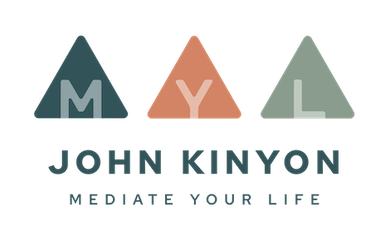Radical Understanding In a Post-Truth World: Part 2
As difficult as it can be to do, the practice of radical empathic understanding — letting go attachment or desire for shared belief — becomes in my view not only a meaningful and valuable personal challenge but also a way to contribute to the larger world culture of “post-truth.” It may be a way that we humans can bridge the gulf of our differences in beliefs in order to come together to live more peacefully in greater well-being, respond collaboratively to the challenges and dangers we face, and create a way of living on the planet that is sustainable, just, and healthy for everyone.
One of the things that makes empathic understanding so difficult yet so valuable is that it can be quite humbling, in a good way! If I really open myself to hearing and understanding in this way, while at the same time trusting my inner strength of self-knowing, I may be changed by what I hear. My own core beliefs or understandings might change and grow. This is terrifying to the part of the mind that wants the stability and security of unchanging knowing of what is true and right. However, opening myself to being changed could be the key to transforming the energy of conflict into new possibilities for greater connection, creativity, and well-being. I have experienced this happen many times now in my own life. This openness to a person’s different reality and the fear of being changed by deeply listening is actually something I learned decades ago from humanistic psychology pioneer Carl Rogers who was (and still is) one of my greatest heroes and sources of learning and inspiration for my work.
In case what I am proposing sounds anti-science, I believe what I am suggesting is actually very much in harmony with the essence of the scientific pursuit of objective, empirically tested knowledge. This quest is always a process, never a static end point. Knowledge continues to grow and evolve, inclusive of all relevant data points that continue to emerge. Good science then is never about closed-ended finality of agreement on the ultimate truth. At its best, science is a beautifully humble, awe-inspired, curious and endlessly open-ended search for what disconfirms as much as confirms our current theories, a welcoming of new, anomalous data to incorporate into our ever-expanding understanding of the world.
Taking this relationship to truth into the realm of social change, empathic understanding can be practiced in the form of compassionate non-cooperation with what one believes to be harmful, both on personal and societal levels. I can refuse to cooperate with what I perceive to be unjust and unhealthy, while still staying connected in empathic conversation, open to hearing and understanding. This for me integrates the method of nonviolence for social change first developed on a large scale by Mahatma Gandhi in India last century, and used famously and powerfully in the U.S. by Martin Luther King, Jr. in the civil rights movement and Susan B. Anthony in the women’s rights and suffrage movement, as well as by many others.
So, the radical understanding I am proposing is not about giving up on objective truth or facts or acting to serve and protect the well-being of ourselves and others. It is about empathy and openness to others and their beliefs, finding a way to connect and cooperate no matter how disparate our realities of the world or the external sources of information we may believe in. And it is equally about standing strongly and courageously in being seen and heard for our own truths and needs for health and well-being for all, as much as doing our best to hear and understand divergent “facts” of others. I believe this way of empathy, strength, and compassion gives us our best chance to create conditions for the positive changes and evolution that we need to happen — personally, societally, globally.

Your point on how difficult it often is to let go of being right is poignant. It feels so good to be right! I see great value in reminding myself that being right could be less comforting than true connection with an enemy image.
John: As I finished reading your post, I thought I might be listening to the grandson or great-grandson of Carl Rogers, moving beyond/past his grandfather.
I enjoyed reading your post. The parts I like best were the following:
“………trusting my inner strength of self-knowing,….”
“So, the radical understanding I am proposing is not about giving up on objective truth or facts or ……….the well-being of ourselves and others. It is about finding a way to connect and cooperate, no matter how disparate our realities of the world.”
“I believe this way of empathy, strength, and compassion gives us our best chance to create conditions for the positive changes and evolution that we need to happen — personally, societally, globally.”
Maybe one suggestion:
Possibly, instead of saying “……. for the positive changes in evolution that we need to happen……….,” to a more request, self-expression type statement such as, “that I would like to see happen…………”. ??
But maybe not.
Chuck
John, thank you for this timely and eloquent reflection. This challenge comes up nearly every day for me, sometimes more as an essence than a situation, and I find myself with an increased longing to practice compassionate non-cooperation in a more tangible way. This post helps crystallize some things that have felt too abstract to act on.